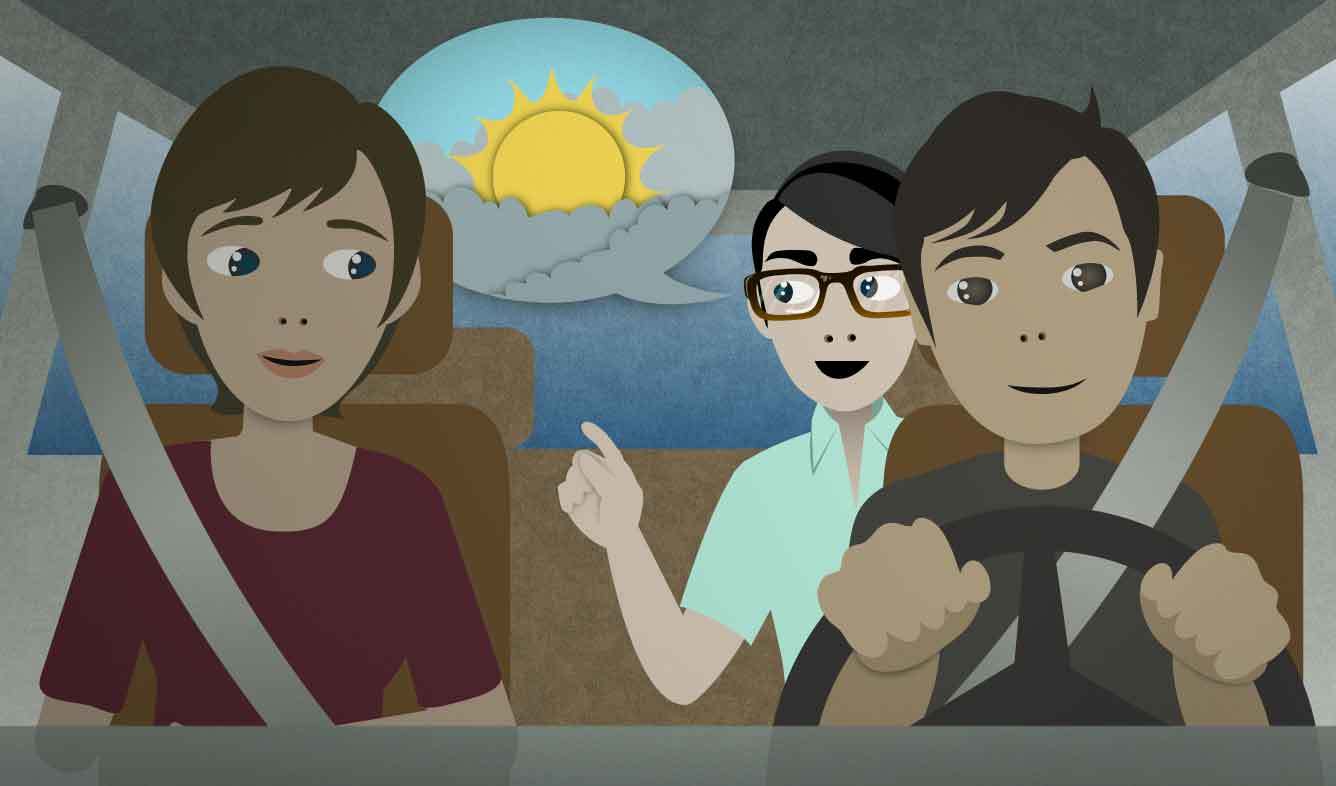“The clouds seem to be clearing up, so that's good.”
You're headed to a barbecue with some friends. It looked like it might rain, but now the weather is improving. You point this out to your friends.
The clouds seem to be clearing up, so that's good.
Want Video and Sound? Follow us on YouTube

(something) seems to (do, have, or be something)
You can say that something "seems to be ___" when you notice something but you're not completely sure that you have identified it correctly. For example, if you're video chatting and it takes her a few extra seconds to answer your questions, you can say:
You can also use "seems to..." to politely point out a problem.
For example, imagine that you're paying for a shirt that you buy at a department store, and you give the cashier some cash. But after he counts it, he says to you:
You seem to be a bit short.
That means "You don't have enough money." But the cashier just says "You seem to be..." to be polite. "Seems to..." is a way to act like you might be wrong about what you've seen or heard, even if you're actually sure that you're correct.
clear up
This phrase means to become completely clear. You can use "clear up" to talk about weather:
If it doesn't clear up soon, we're going to have to cancel the game.
In this case, "clear up" means for the clouds to go away, and for any rain or snow to stop.
"Clear up" can also be used to discuss an illness:
I hope your cold clears up soon.
That's good.
English speakers use the phrase "That's good" when they want to say something polite and positive, but they can't think of anything else more specific to say:
A: How have you been?
B: Well, work has been keeping me busy lately, so that's good.
A: Did the party go well?
B: Yeah, it went really well.
A: Oh, that's good.
